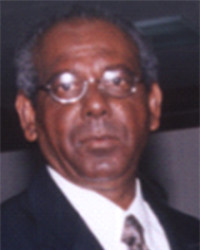After local government elections in 1994, there were by-elections to elect the chairperson and vice-chairperson of three Neighbourhood Democratic Councils (NDCs) following a deadlock at the council level and in the absence of a compromise, there is a growing view that this should have been done following similar stalemates this year.
Amid a row between the APNU+AFC government and the opposition PPP/C over the decision of Minister of Communities Ronald Bulkan to appoint the chairpersons of six local authority areas after a deadlock in voting by the councillors, an expert on local government elections told Stabroek News that as far as he is aware, that piece of legislation has not been changed and the matter should have gone back to electorate of those areas as provided for by the law.
The expert, who preferred to remain anonymous, however noted that others have highlighted that some sections of the legislation speak to timelines which would render the issue problematic and there are some inconsistencies in the legislation when looked at holistically.
Notwithstanding, there is a precedent and Senior Counsel Ralph Ramkarran says it is clear that the legislation provides for by-elections by voters. Leader of the Opposition Bharrat Jagdeo has also called on the Guyana Elections Commission (Gecom) to take action in this regard.
Following the March 18 local government elections, there were ties at the council level in one town, Mabaruma, and five NDCs namely Woodlands/Bel Air, Malgre Tout/Meer Zorgen, Gibraltar/Fyrish, Industry/Plaisance and Woodlands/Farm. After two votes, the councillors were unable to elect a mayor in the case of Mabaruma and chairpersons in the case of the NDCs and Bulkan stepped in. The APNU+AFC government has defended Bulkan’s decision to appoint the mayor and chairpersons in the contested areas, advancing a number of reasons for the move, but apparently by-elections were not even considered by the government.

“I am unaware of that,” was the response of Attorney General Basil Williams on Thursday when Stabroek News pointed to the by-elections in 1994. Bulkan, who was also at the press conference at the AG’s office, said if this was the case, why then did the PPP/C and their councillors participate in the second meeting of the councils to elect the chairperson.
Jagdeo had highlighted the 1994 by-elections at a press conference earlier on Thursday.
According to Stabroek News reports, following the August 8, 1994 local government elections, there were ties in three NDCs namely Soesdyke/Huist Coverden, Gibraltar/Fyrish and Mabaruma/Kumaka/Hosororo. In all three of these areas, equal numbers of seats on the 18-member councils were secured by the PPP/C and community groups which contested the polls. As a result, fresh elections were held for the chairperson and deputy-chairpersons of the three NDCs.
Stabroek News had reported at the time that at the first meeting of the newly elected councils of Soesdyke/Huist Coverden and Gibraltar/Fyrish on September 23, 1994, there was a deadlocked first vote and the clerk advised that a run-off would have to be held. These polls were held on October 17, 1994 and the PPP/C’s candidate for chairman of Gibraltar/ Fyrish, Kenneth Joseph won with 747 votes and his colleague won the post of deputy-chairman with 755 votes. At Soesdyke/ Coverden, the Soesdyke/ Coverden Community Development Group candidate for chairman Leon Barker won the post with 530 votes while his compatriot Joan Haynes rattled up 527 votes to take the deputy-chairperson post. The election for Mabaruma/Kumaka/Hosororo was held on October 28, 1994.
At the time, the then chairman of the elections commission Edward Hopkinson said the by-elections would follow the pattern of the August 8, 1994 local government elections but only the chairman and deputy chairman positions would be contested. He had said that the same lists and all the procedures in the run up to the August 8, 1994 local government elections would be followed.
Framers
Williams and Bulkan have argued that it is clear from a reading of the entire local government legislation that the framers never intended for the electorate to directly elect a mayor. Even if this could be done, Williams had said, it would take several months.
“It would be an absurdity if it has to be resolved by going to such an election,” the AG said emphasising that there is no provision in the law to directly elect a mayor or chairperson. He said even if it is assumed that a mayor could be elected directly by votes, the preparations would take “four to five months.”
In 1994, the run-offs were done in a matter of weeks, following the holding of the first meeting of the council. As it relates to the NDCs, Section 28 (6) of the Local Government Act Chapter 28:02 says if there is a tied vote “the overseer shall immediately fix a day within the last ten days of the year for the election, by the registered voters, of a chairman from the councillors receiving the greatest number of equal votes, and the election shall be held and conducted and a return or election made in all respects in the same manner as provided for the election” of councillors.
Section 28 (7) goes on to say that in the event of a tie at this election, the minister shall select one of the councillors receiving the greatest number of equal votes to be chairman.
As it relates to Mabaruma, which is now a town, Section 13 (6) of the Municipal and District Councils Act Chapter 28:01 states that if there is an equality of votes at the election for the mayor by the town council, “the Town Clerk shall appoint a day not later than the 28th December in the same year for the election of the Mayor from among such candidates by the voters whose names appear on the register of voters for the time being in force for the City.” Only if there is a tie, then the minister can step in.
Despite not saying so directly, it is clear that the government is interpreting the word “voters” in the legislation to mean “councillors” as both Williams and Bulkan emphasised that two elections by the councillors were held, there was a tie at both and therefore, the provisions enabling Bulkan to select the Mayor of Mabaruma and the chairpersons of the NDCs kicked in.
“Section 13 says that if there is a tie, then you must have a second meeting, if there is a tie at the second meeting, then the Minister of Communities is empowered to select one of the tied persons to be the mayor and in the case of the NDCs under 28:02 which the provisions are similar, chairmen,” Williams had said.
He pointed out that in all the six cases, the first meeting was followed by a second meeting at which all the PPP councillors participated and voted. “At no time before participating in the second meeting, did the PPP/C and/or its councillors object to the legality and lawfulness of the second meeting,” he said. He questioned why if the PPP/C believed that the second election would be by the electorate, they would send their councillors to the second meeting when it was made clear that the entire purpose of the meeting would be for the election of mayor or NDC chairmen.
The PPP/C has moved to the courts to challenge the appointments and Justice Diana Insanally has granted an interim order quashing Bulkan’s decisions.
Meantime, in his Sunday Stabroek column yesterday, Ramkarran said the appointments of the mayor and chairs by Bulkan did not accord with the provisions of the legislation. He noted that Section 13 of the Municipal and District Councils Act provides for the election of mayor and deputy mayor. Subsection (5) provides for the election by majority vote. Subsection (6) then makes provision in case of a tie.
“It is clear that this section provides that there should be an election by voters, and not an appointment by the Minister, where there is a tie,” Ramkarran wrote. He highlighted that the power of the Minister to appoint occurs when the election by voters result in the two persons obtaining the highest votes securing an equal number of the highest votes. This same position applies in relation to the NDCs, he said.
“Since on this view the ministerial appointments cannot stand, APNU and the Government will have an opportunity to reconsider the compromise proposed by the PPP or some other reasonable resolution, before calling election for Mayor and Chair for the six areas,” Ramkarran wrote.
Meanwhile, in a statement on Saturday, Jagdeo called on Gecom to act. The statement cited Gecom’s “bewildering silence and inaction” in the matter. It said that it is public knowledge that the PPP/C has launched legal proceedings and obtained a series of orders from the High Court quashing Bulkan’s decisions. Orders were also obtained restraining the Mayor, Deputy Mayor, and the Chair Persons and Deputy Chair Persons from functioning in those capacities. Orders were also obtained mandating the Town Clerk of Mabaruma and the several overseers of the NDCS, to appoint a date for new elections in the several local authority areas affected.
“These legal proceedings were filed not only to protect and defend the will of the electorate, but was also done to protect and preserve the Constitutional mandate of Gecom which is the authority that the Constitution has endowed with the exclusive responsibility in respect of and in relation to the conduct of the elections,” the statement said.
“Against this background Gecom’s silence and inaction amounts to a gross abdication of its constitutional responsibilities. It is obvious that were Gecom to assume its responsibilities, it will present some reprieve to this impasse. We call upon Gecom to snap out of this paralysis and begin to discharge its mandate now,” it declared.




